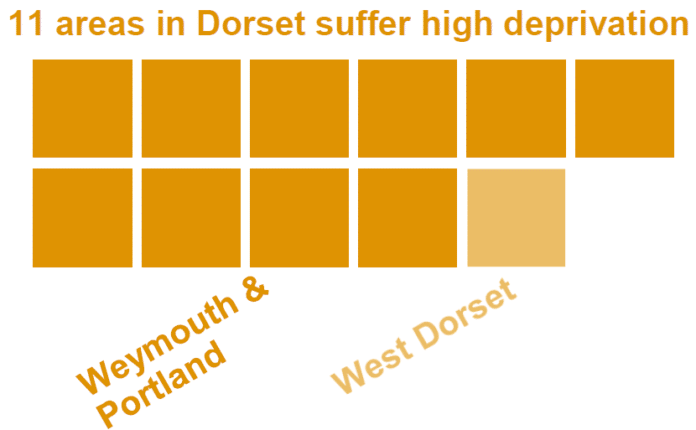Dorset Council’s current bid to be recognised as a low-tax “investment zone” highlights the vulnerability of the county’s economy – and in particular the crisis in its main urban centre, Weymouth and Portland. These twin towns have been in headlong decline for 30 years. A new report, Forgotten Towns, investigates.
Why have communities of Weymouth and Portland been deskilled, leaving many jobs as part-time, seasonal work offering limited opportunity for young people? Why have local authorities and development agencies shown scant interest? What can be done to bring change?
Forgotten Towns, a report from South Dorset Research Group, focuses on these problems. Launched with a discussion at Bournemouth University, the report considers why Weymouth and Portland is viewed by government researchers as a “cold spot” for social mobility and why social deprivation has increased sharply in recent years.
Dr Mel Hughes of Bournemouth University says: “Forgotten Towns is a great example of the knowledge, expertise and insight that local communities have themselves on the issues and challenges which affect them most. The report provides a wealth of data to highlight the extent of the inequities facing residents of South Dorset and should prompt us all to take action.”
Weymouth and Portland once provided thousands of high-skilled jobs. When defence bases were closed in the 1990s, both public sector and private sector employment collapsed. The report examines the consequences – and the apparent disinterest of local bodies in providing investment and support.
South Dorset now stands at or near the base of national indices measuring income and social mobility. The report notes the refusal of Dorset Council to address these issues by undertaking research and developing policies to address what one former Council executive calls “Dorset’s Shame”. The report emphasises the urgency of research on key problems including employment, wages and the labour market; family incomes and child poverty; and out-migration of young people. It proposes a series of interim measures to tackle multiple deprivation.
Forgotten Towns finds that idyllic images of South Dorset have been used routinely to justify reluctance of local authorities to address the area’s pressing problems. Living in “Beautiful Dorset” has been seen by MPs, elected officials and planners as sufficient to satisfy the needs of local communities, despite compelling evidence of family poverty, declining health and poor educational outcomes – and sharply rising housing costs.
Co-author Jenny Lennon-Wood says: “Community organisations make great efforts to improve working lives and the environment for people living in Weymouth and Portland but they can’t do so effectively without cooperation, support and action from those who hold the power and the purse strings.”
The report addresses a pressing demographic problem – as Dorset’s population ages, young people feel the need to find jobs and homes elsewhere. Who will support our aging local communities?
Dr Trevor Hearing at Bournemouth University says: “This report asks important questions about the present and future of Weymouth and Portland. Like many coastal towns, the local community has been buffeted by the economic and social squalls of recent decades and the need to address the demographic ‘timebomb’ of an ageing population highlighted by the report has never been more urgent.”
With the country described by City analysts as ‘returning to the 1970’s’ this song seems to have gone full circle:







